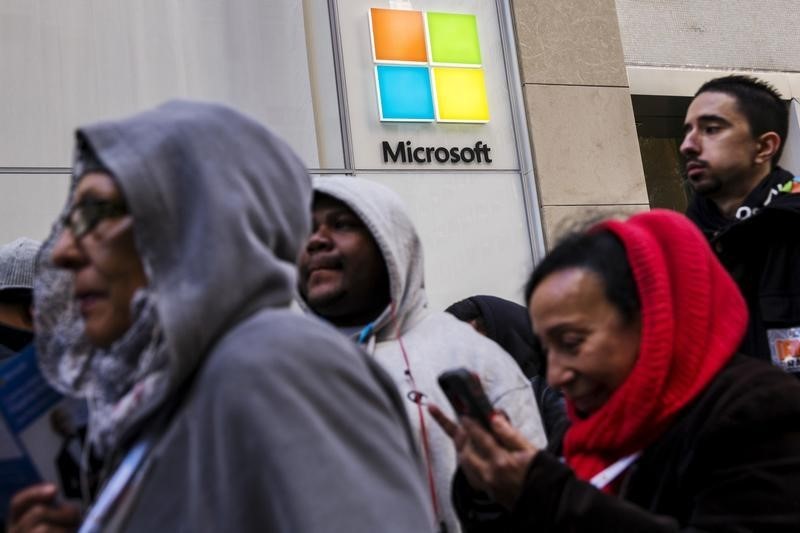Investing.com -- Microsoft (NASDAQ:MSFT) reported fiscal first-quarter results that topped Wall Street estimates, underpinned by strength at its cloud unit. However, shares in the software titan fell over 4% Thursday on a softer current-quarter guidance for the division.
The company reported first-quarter earnings per share (EPS) of $3.3 on revenue of $40.59 billion. Analysts polled by Investing.com anticipated EPS of $5.21 on revenue of $40.18 billion.
Azure, Microsoft's cloud business grew 33%, just above analyst estimates of around 32%. However, Chief Financial Officer Amy Hood flagged the segment's growth would slow to between 31% to 32% in its second quarter, weighing on Microsoft's stock price in premarket trading on Thursday.
Growth in Azure benefited from 12 points of contribution from AI services, versus 11 points in the prior quarter, equating to roughly $1.5B in quarterly revenue, analysts at RBC (TSX:RY) Capital Markets estimated in a note.
Fully burdened capital expenditures came in high, at $20.0B, RBC said, adding that it was also a factor likely denting the stock in after-hours trading.
Meanwhile, Barclays (LON:BARC) analysts flagged in a post-earnings note that they "fear the wait will continue for Microsoft's shares."
"Short term supply issues around AI capacity are likely to cause stable Azure consumption trends in [the second quarter versus the first quarter], which is solid but not [necessarily] a new catalyst that gets investors excited," they noted.
"Things should get better in [the second half], but investors will only find out about the magnitude of this re-acceleration in April 2025 when Microsoft [third quarter] numbers come out, leaving little to be excited about in the near term."
Separately, Morgan Stanley (NYSE:MS) analysts led by Keith Weiss said while demand signals for Microsoft remain strong, supply constraints "continue to limit growth in the [generative AI]-related businesses."
However, investors "should see rewards for waiting" as the company remains confident in its capacity ramp-up in the second half of the year, they said.
Yasin Ebrahim contributed to this report.
